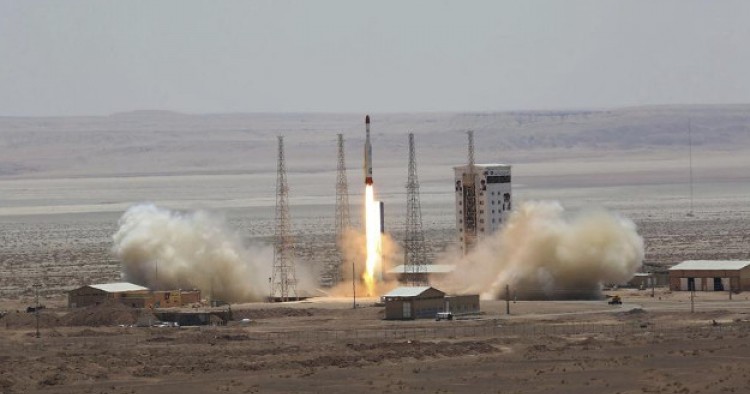The Iranian minister of communications and information technology has rejected claims by the United States and European countries that Iran's space projects are inconstant with the nuclear deal Tehran signed with world powers in 2015. "Unfortunately, the launch of satellites has become a political issue in the world, but the claim that launching satellite is against the nuclear deal is basically wrong as we are entitled to this right and we can make an utmost use of this possibility in our country," Mahmoud Vaezi Vaezi stressed. Noting that Iran's new satellite, Dousti (Friendship), is ready to launch, he added, "We insist that the launch be done by an Iranian carrier."
Vaezi made the comment after Iran last week inaugurated the Imam Khomeini Space Center which Iranian leaders described a "turning point" in the country's space activities. Hossein Shahrabi, the chairman of Iran's Sairan Space Group, told the Iranian state T.V. that "the space center would allow Iran to start competing with world powers for launching light-weight satellites to low orbits of the earth".
On July 27, Iran successfully launched a space rocket called Simorgh, carrying the imaging satellite Tolou into space. President Hassan Rouhani welcomed the launch. "Today, space science is very important for us and the greater our scientific power is, the greater will be our sovereignty and dignity," he wrote on his Instagram account.
Comment: Iran has recently placed increased emphasis on developing its satellite technology. Last December, Vaezi said his country was set to launch three satellites in 2017 and claimed all the three satellites were locally manufactured by Iranian scientists. But he revealed that Iran had finalized a deal with a Russian company to produce remote-sensing satellites.
U.S. officials have expressed the worry that Iran’s satellite and space work may function as a cover to produce intercontinental ballistic missiles (I.C.B.M.s). Such long-range missiles could carry a nuclear weapons and target not just Israel and other regional countries but also Europe and the United States. The U.N. Security Council Resolution 2231 calls upon Iran not to produce I.C.B.M.s or similar long-range missiles.
After Iran launched he Simorgh satellite last week, France, Germany and Britain jointed the United States in condemning the launch as a “threatening and provocative step. In a report to the U.N. Security Council, the Western powers also described Iran’s July 27 satellite launch as inconsistent with the Resolution 2231.
The Middle East Institute (MEI) is an independent, non-partisan, non-for-profit, educational organization. It does not engage in advocacy and its scholars’ opinions are their own. MEI welcomes financial donations, but retains sole editorial control over its work and its publications reflect only the authors’ views. For a listing of MEI donors, please click here.













